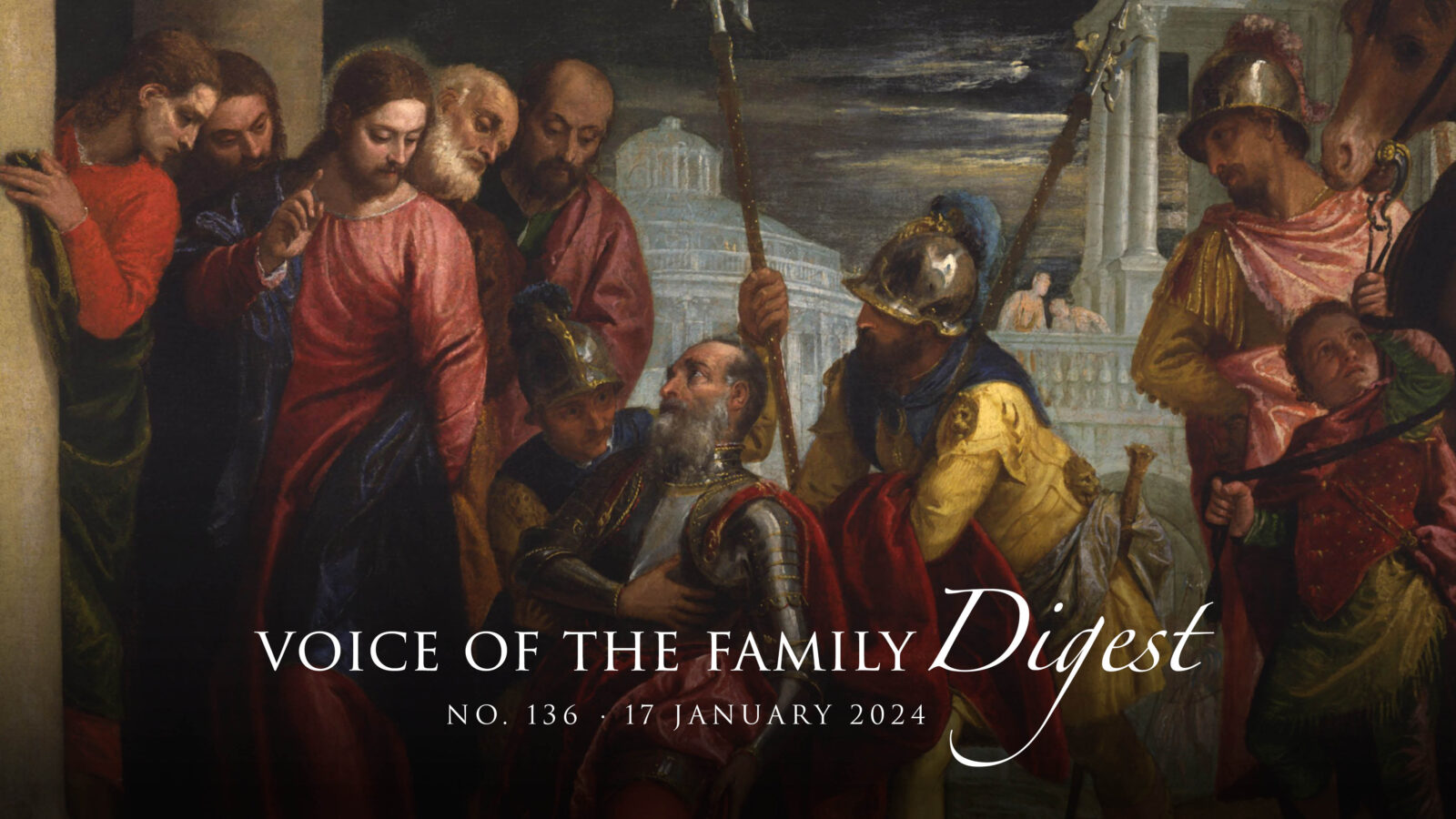The centurion’s faith and humility: sermon on the third Sunday after the Epiphany
By a Dominican Friar | 17 January 2024

Domine, non sum dignus — “Lord, I am not worthy that thou shouldst enter under my roof…”
These words of the Roman centurion are very familiar to us, so much so that it may cause us a slight jolt when they don’t end in the way that we are used to: sanabitur servus meus, they end in the gospel — “my servant shall be healed” — rather than sanabitur anima mea — “my soul shall be healed”. But the Church has borrowed these words of the soldier, making this slight change, and placed them into the rite of Holy Communion, whether inside or outside the Mass. The Church, then, wants this centurion to be our model when we come to the altar rail to receive the Bread of Life. You know that we don’t all receive the same benefits from Holy Communion. Receiving Holy Communion is like going into a treasure house with unlimited treasure: the only limit to how much treasure we carry out will be the strength we have to carry it. The stronger a person is, the more treasure he will carry out. In the same way, the better disposed we are for a sacrament, the more grace we will receive. There is no limit on God’s willingness to give, only on our capacity to receive. So, what lessons can we learn from this Roman soldier about the dispositions necessary for a good Holy Communion?
Straightway, I can think of two such lessons: faith and humility. This centurion is a man of impressive faith, all the more so in that he lacked the advantages of the Jews of his time. As a Gentile, he is unlikely to have been raised to believe in the true God; and the Roman army in the first century was certainly not a school of the true religion. Yet somehow, by the grace of God, he has reached faith, and a faith of which our Lord says that He has not found the like in Israel. Here we should understand, I think, “I have not found it among those who represent Israel officially”, such as the scribes and priests and pharisees, somewhat as this centurion represented Rome. He is already here a model for us, since when we come to Mass and Holy Communion, we must begin by believing that God has the power to work this miracle, to convert bread and wine into His Body and Blood.
But not only so, as well as believing in the true God, the centurion believes in Christ. How do we know this? He recognises our Lord as having authority over others, as he himself has authority over his soldiers. But what kind of authority does he see in Jesus of Nazareth, who appears simply to be a humble rabbi? Not military power, or political power, in the ordinary sense of the words: no, he sees that Jesus has come from heaven in the Father’s name, to give life to the world. This centurion sees beyond the appearances to what is really there. And this is what we do in Holy Communion; we see beyond the appearances of bread and wine to what is really there, to the Bread that has come down from heaven to give life to our souls.
But as well as a model of faith, the centurion is also a model of humility. After all, he was a man in a position of power, who was used to being obeyed. “I say to this man, go, and he goeth, and to another, come, and he cometh.” To the inhabitants of little Capharnaum in Galilee, he with his hundred soldiers would no doubt have been the most formidable person around. Yet this powerful Gentile is not ashamed to humble himself in the sight of all the Jews in town, telling Christ: “I am not worthy that thou shouldst enter under my roof.” And Jesus marvelled: marvels to find such faith in a Gentile, and such humility in a centurion.
Here too, by his humility the centurion shows us a disposition that we need for our Holy Communions. However strong or important we may be, or seem to be, we’re to kneel down if we are physically able. By that simple act of kneeling, it’s as if we’re saying to our Lord, “I haven’t got any strength to do anything good, or even to keep Thy law for a single day, without Thee, the Bread of life.” And if we have sinned, we’re not ashamed also to kneel beforehand in the confessional, saying, like the leper in the gospel, “Lord, thou canst make me clean.” That way, our Holy Communions will never bring us condemnation; but each will bring us closer to the final banquet, when we shall meet Abraham, Isaac, and Jacob, in the kingdom of heaven.
